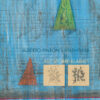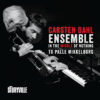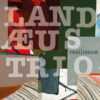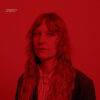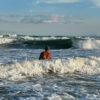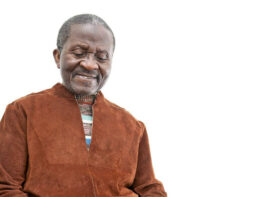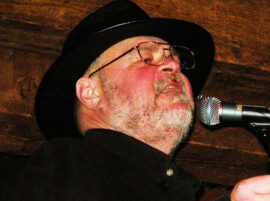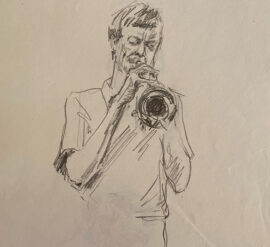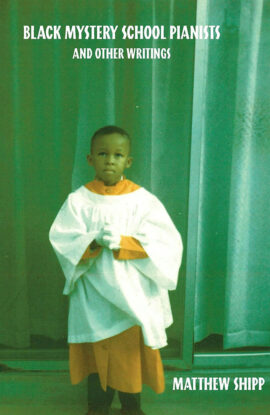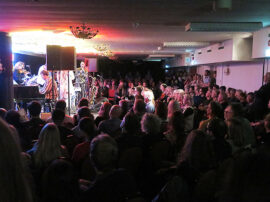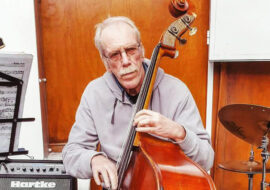
The Italian-sounding Orchestra Nazionale della Luna claims to be one of the most important bands on the moon that plays traditional moon music. Obviously, if you believe the kind of Fellinian sense of humor of its founders, who have no Italian roots – Finnish keyboardist Kari Ikonen and Belgian wind player Manuel Hermia (of Slang and a trio with drummer Sylvain Darrifourcq and cellist Valentin Ceccaldi), who are joined by fellow Belgian drummer Teun Verbruggen (of Flat Earth Society, who collaborated with Arve Henriksen and stian Westerhus) and French double bass player Sébastien Boisseau (who runs Yolk Records, known for his collaborations with Louis Sclavis and Daniel Humair). To complete the cosmopolitan-inter-galactic picture of this Orchestra, the fourth album of this imaginative quartet, Selene’s View, is released by the Bidapest-based Hungarian label, BMC Records, where Ikonen and Hermia met for the first time.
Selene is the goddess of the moon who looks at the earth from the outside. She is concerned but distanced, objective and with an obvious critical spirit, just like the Orchestra Nazionale della Luna. This international quartet is rooted in the jazz legacy. Still, it is open to far-reaching horizons, including classical and contemporary music, the sounds of Indian and Arabic music, as well as electronic effects. And, in the wake of this lunar gaze, the compositions are imbued with lucid thinking about our times, our societies, and the new paradigms we face. The ecological crisis, crisis of work, crisis of meaning. Economic crisis, demographic crisis, migration crisis, social crisis, political crisis.
Selene’s View questions these social disruptions with clever and ironic, subversive dramas – explained beautifully by Ikonen and Hermia, who composed the nine pieces, in the liner notes – and balances playfully between composition and improvisation, acoustic and electronic sounds, order and chaos. The opening piece, «Fragmentos del Silencio», is Ikonen’s arrangement of an old Argentinian tango «Silencio», that its original text by Carlos Gardel classic tells about the always relevant, painful nocturnal silence of lonely mothers who have lost all their sons in wars. «Data Lake» refers to French poet Alphonse de Lamartine’s famous poem and questions the concept of Artificial intelligence, given the hyperactivity of our social media and connected devices, all generating too much information about each and every one of us. «Bialystok», after the Polish city, mocks EU eco funds, given to the city to build bike lanes, but once the funds were received the city returned cars to the same lanes. «Doubt Factory» addresses the fake factories that generate doubts to destabilize states and influence elections around the world.
«Conflictuous» captures faithfully the complexity of all the huge problems humans have on Earth. «Transience», based on the popular Iraqi-Syrian rhythmic pattern Georgina, reminds us in the awareness of the transience of the present that we can feel most alive. «Kompelo» is written with a semi-dodecaphonic system, where each chord includes one note from the previous one, creating a bit more tonal feel, corresponding with awkward situations in our daily lives. «Overexploited» borrows a scale of an Indian raga and relates to our current time when nature, our planet, animals and machines are overexploited. This quite unique musical meteorite ends with «E-peli» which captures perfectly the quirky yet intoxicating spirit of Selene’s View, but offers some relief from its troubling issues. E refers to musical Events that are being played on specific hand cues in this peli, which is a Finnish word for game. Epeli also means a rogue or a rascal, but usually in an affectionate way.
Eyal Hareuveni
Kari Ikonen (piano [with and without Maqiano], Moog synthesizer), Manuel Hermia (saxophone, flute, bansuri), Sébastien Boisseau (double bass), Teun Verbruggen (drums)


